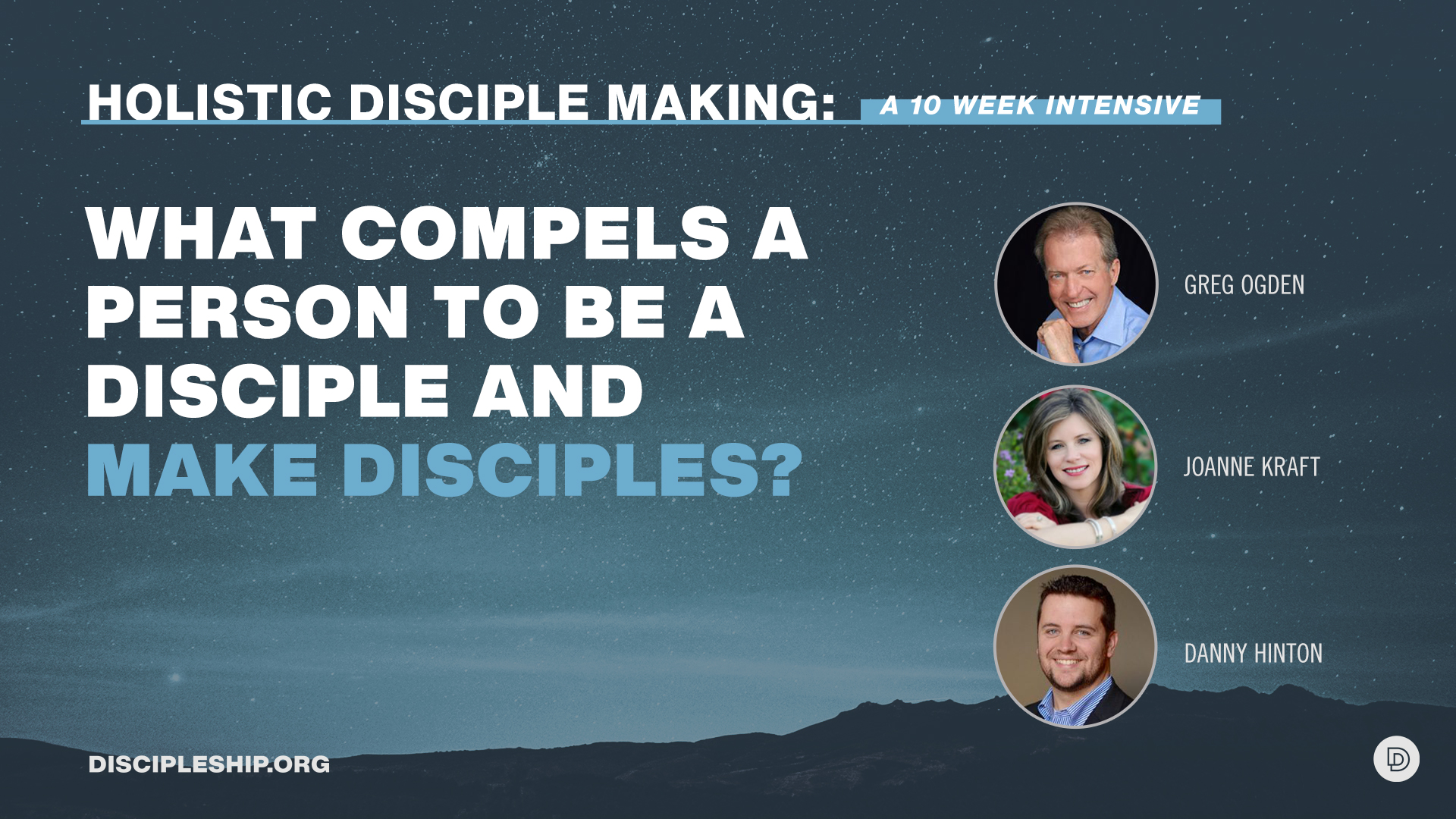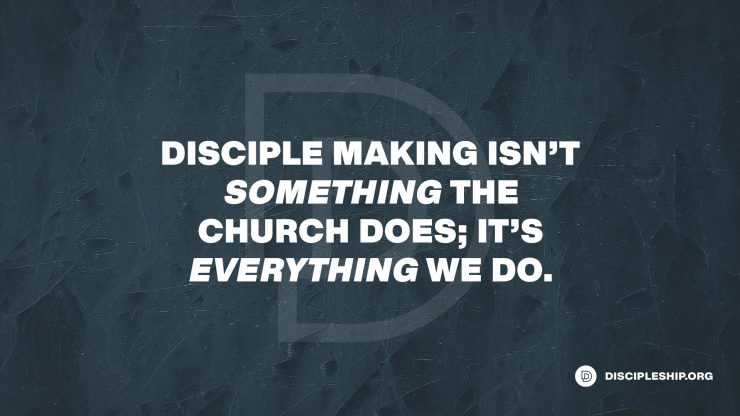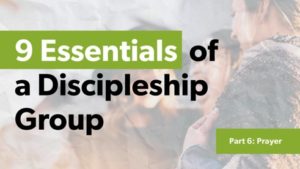What Compels a Person to Be a Disciple and to Make Disciples?
What Compels a Person to Be a Disciple and to Make Disciples?
By Greg Ogden
Of course, to be a disciple is to be a follower of Jesus. So, the real question is, What is it that makes Jesus so compelling that we are willing to turn aside from every other claim upon our life and set our course to walk in his steps?
A relationship with Jesus, I believe, should come with equal amounts of fascination and fear: can’t live with him; can’t live without him. As much as he affirms us, he disturbs us. As much as he gives us a singular focus, he complicates our decisions. He is the confounding Christ.
Peter’s Encounter with the Confounding Christ
The apostle Peter had an experience with the confounding Christ when Jesus called him along with James and John to catch people instead of fish. We find this whopper of a fish story in Luke 5:1–11.
Let’ set the scene: Masses of people have converged on the shore of Sea of Galilee to hear Jesus’ message. The sheer physical press of the crowd forces Jesus to borrow Peter’s boat, which he turns into a floating pulpit. We aren’t told what Jesus taught about that day, because that was not the focus of the story.
Upon completion of his teaching, Jesus proceeds to set Peter up with the command, “Put out into the deep water, and let down the nets for a catch” (Luke 5:4). Peter responds with an exasperation born of exhaustion. “Master, we’ve worked hard all night and haven’t caught anything” (Luke 5:5). You get the impression that Peter just thinks Jesus is out of his element. Peter is a fisherman, who comes from a long line of fishermen. Perhaps Peter was thinking, Jesus, you stick to preaching, and let us handle the fishing.
Yet out of sheer reverence for the “Master,” Peter accedes to the request. “But because you say so, I will let down the nets” (Luke 5:5b). Peter had no expectation of success. Yet no sooner had the nets been lowered into the sea than it seemed that every fish within miles had decided their time was up. Peter signaled for his partners to join him in order to land this catch, and yet even with two boats, the size of the haul threatened to sink them both.
Our interest here is Peter’s reaction to the catch of fish. If Peter had been selfishly focused solely on the financial success of this venture, he might have consulted a lawyer, drawn up a contract and tried to sign Jesus on as a full partner. Yet financial gain is nowhere to be found in Peter’s consciousness.
This Jesus who confounds Peter is simultaneously attractive and disturbing. “When Simon Peter saw this, he fell at Jesus’ knees and said, ‘Go away from me, Lord; I am a sinful man’” (Luke 5:8). Peter was a conflicted man.
On the one hand, Peter appears to be magnetically drawn to Jesus. I visualize Peter high stepping it through the waters, running toward this man who commands the seas to obey him. Peter falls on his knees at the feet of Jesus in an act of worship. He is drawn toward life.
Yet at the same time, Peter intuitively knows he is in the presence of no mere mortal. He is experiencing an excruciatingly painful self-exposure. “Go away from me, Lord; I am a sinful man” (Luke 5:8). I don’t deserve to be in your presence, Peter is saying. Leave me, for I can’t seem to leave you.
I would submit that this fascination and fear dynamic is what compels us to live under the formative power of Jesus Christ. Peter had no human categories now in which to understand this person who had orchestrated this fish story beyond all stories. The normally hidden glory of God was revealed, and Peter had nowhere to hide.
Up to this point, Peter was like the rest of us: blasé about his sin. Sure, he might have thought, I am not perfect, but no one is. But now he could be blasé no longer.
Oswald Chambers has captured Peter’s experience: “If we have never had the experience of taking our commonplace religious shoes off of our common place religious feet, and getting rid of all the undue familiarity with which we approach God, it is questionable whether we have ever stood in his presence. The people who are flippant and familiar are those who have never been introduced to Jesus Christ.”
Peter has been so introduced.
Yet, it was against this backdrop and that Jesus honors Peter, James, and John by enlisting them in his ministry. Jesus in essence is saying, now that I brought you to the end of yourself, I am bestowing on you the greatest honor by calling you to join me on the greatest enterprise humans can be engaged. “Then Jesus said to Simon, “Don’t be afraid; from now on you will fish for people.” So they pulled their boats up on shore, left everything and followed him” (Luke 5:10b–11).
You and I are being recruited by the Lord of glory to be engaged in his eternal mission. What could be more compelling than that? Yet, it is full of fascination and fear. Our Lord will take you places you never imagined, but you will have to face your fears to get there. The first thing Jesus says to Peter, James, and John is, “Don’t be afraid” (Luke 5:10).
In part, Jesus is saying, “Don’t be afraid of me. My exposing your sinfulness is not meant for harm. It is a prerequisite for your availability.” But we can imagine other fears that went through Peter’s mind: Fishing is my livelihood; how will I provide for my family? Where are we going? What does it mean to fish for people?
Every major growth step into my obedience has been in the context of facing fear. Let me personalize my fear with one brief story. I was invited to minister in a maximum-security prison because the chaplain was using my disciple making materials. Whenever I heard people give testimony about prison ministry, my stomach recoiled and my internal reaction was, God bless you for doing that, I can’t imagine doing that for myself. Then there I was for the first time, hearing the metal gates clang and seeing the sign, “no hostages beyond this point.” As I mingled with the prisoners, God ambushed me. He said, “I have called you to this ministry.” That was seven years ago, and I have been going to a local state prison weekly ever since.
What compels us to follow Jesus? Our life awaits its fulfillment in him if we let go, face our fears, and follow him into this eternal enterprise of being a disciple and making disciples.
So, that leads us to the next question: What would compel us to make disciples?
Let’s turn to the next chapter in Luke’s Gospel, for again Jesus models for us the compelling nature of disciple making, “In these days he went out to the mountain to pray, and all night he continued in prayer to God. And when day came, he called his disciples and chose from them twelve, whom he named apostles” (Luke 6:12–13).
At this stage of Jesus’ ministry, he has been gathering an entourage larger than the Twelve. Luke signals the importance of the naming of twelve by focusing on the all night prayer as the backdrop. This is one of those times I would have loved to eavesdrop on Jesus’ conversation with the Father. I imagine Jesus bringing each of his would-be followers by name, praying for what they will become under his tutelage. He knew he had very raw material to work with, but the only way to shape them into the people they were called to be was in relationship with him.
What does this teach us about the compelling nature of disciple making? Disciples are made in relationship. Disciples are called by name to come and follow Jesus. Our disciple making needs to follow Jesus’ relational model.
Just as Jesus spent time in prayerful discernment seeking to know from the Father to whom he was drawn, all discipling relationships need to be birthed in discerning prayer. What sets these relationships apart from all others is the power personal invitation. We can approach a prospective invitee with the knowledge that God has placed them on our heart.
What a contrast this is to church programs! Jesus is about relationships; churches tend to be about programs. What is the difference?
Programs focus on information; relationships focus on transformation.
Programs are about herding as many people as possible through systems. I pastored a church in the Midwest that was all about correct theology. If we could just get people to understand justification by faith alone, then they were good to go.
Transformation occurs when we open our lives to each other in transparent trust. It is this intimacy with each other that serves as the soil in which God’s word can sink deep into our lives. Alicia Britt Chole calls this, “purposeful proximity.”






